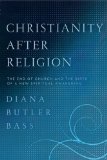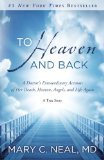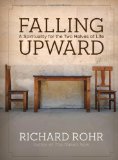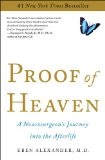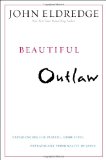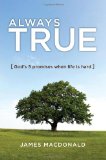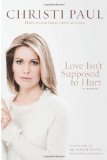Review of Christianity After Religion, by Diana Butler Bass
The End of Church and the Birth of a New Spiritual Awakening
by Diana Butler Bass
HarperOne, 2012. 294 pages.
Starred Review
This is an important book for Christians to read, no matter how they feel about the sociological phenomena happening that the author describes, and whether they agree with her or not.
Here are some segments from her introduction:
Strange as it may seem in this time of cultural anxiety, economic near collapse, terrorist fear, political violence, environmental crisis, and partisan anger, I believe that the United States (and not only the United States) is caught up in the throes of a spiritual awakening, a period of sustained religious and political transformation during which our ways of seeing the world, understanding ourselves, and expressing faith are being, to borrow a phrase, “born again.” Indeed, the shifts around religion contribute to the anxiety, even as anxiety gives rise to new sorts of understandings of God and spiritual life. Fear and confusion signal change. This transformation is what some hope will be a “Great Turning” toward a global community based on shared human connection, dedicated to the care of our planet, committed to justice and equality, that seeks to raise hundreds of millions from poverty, violence, and oppression….
This book is concerned with religion and change — specifically how Christianity, especially Christianity in the United States, is changing and how people are questioning conventional patterns of faith and belief. At the outset, let me be perfectly clear. I do not think it is wise to adapt religions to contemporary tastes willy-nilly. As the gloomy nineteenth-century Anglican dean William Inge once said, “Whoever marries the spirit of this age will find himself a widow in the next.” I do, however, think it is exceedingly wise for faithful people to intentionally engage emerging religious questions in order to reform, renew, and reimagine ancient traditions in ways that make sense to contemporary people.
The 1970s were the beginning of the end of older forms of Christianity, and now, decades later, we are witnessing the end of the beginning. What follows is a sustained reflection on how religion has changed in our lifetime — a life lived between the beginning of an end and the end of that beginning — and what that means for Christian faith and practice. Much has changed. Where Chirstianity is now vital, it is not really seen as a “religion” anymore. It is more of a spiritual thing.
She achieves this “sustained reflection.” I read it slowly, so I don’t remember everything she said, but that it all got me thinking. However a couple things stood out:
First, people of all religions and non-religions are talking about and seeking “spirituality.” It’s not so cool to be “religious.” But everyone seems to be after being “spiritual.” Here’s an interesting section about that:
But spirituality is neither vague nor meaningless. Despite a certain linguistic fuzziness, the word “spiritual” is both a critique of institutional religion and a longing for meaningful connection. In a wide variety of guises and forms, spirituality represents an important stage of awakening: the search for new gods. As the old gods (and the institutions that preached, preserved, and protected the old gods) lose credibility, people begin to cast about for new gods — and new stories, new paths, and new understandings to make sense of their new realities. In the process, the old language fails, and people reach for new words to describe the terrain of their experience. “Spirituality” is one such word, an ancient word, to be sure, but a word that is taking on fresh dimensions of meaning in a fluid and pluralistic religious context. To say that one is “spiritual but not religious” or “spiritual and religious” is often a way of saying, “I am dissatisfied with the way things are, and I want to find a new way of connecting with God, my neighbor, and my own life.” It might not be a thoughtless mantra at all — in many cases, it may well be a considered commentary on religious institutions, doctrine, and piety.
Another part I remember is where she talked about how community is more important than ever.
If you want to knit, you find someone who knits to teach you. Go to the local yarn shop and find out when there is a knitting class. Sit in a circle where others will talk to you, show you how to hold the needles, guide your hands, and share their patterns with you. The first step in becoming a knitter is forming a relationship with knitters. The next step is to learn by doing and practice. After you knit for a while, after you have made scarves and hats and mittens, then you start forming ideas about knitting. You might come to think that the experience of knitting makes you a better person, more spiritual, or able to concentrate, gives you a sense of service to others, allows you to demonstrate love and care. You think about what you are doing, how you might do it better. You develop your own way of knitting, your own theory of the craft. You might invent a dazzling new pattern, a new way to make a stitch; you might write a knitting book or become a knitting teacher. In knitting, the process is exactly the reverse of that in church: belonging to a knitting group leads to behaving as a knitter, which leads to believing things about knitting.
Relationships lead to craft, which leads to experiential belief. That is the path to becoming and being someone different. The path of transformation.
It is also the path found in the New Testament; the Way of Jesus that leads to God. Long ago, before the last half millennium, Christians understood that faith was a matter of community first, practices second, and belief as a result of the first two. Our immediate ancestors reversed the order. Now, it is up to us to restore the original order.
As you can see, she draws some conclusions from current trends and reexamines what Christianity should be all about.
A thought-provoking and important book.
dianabutlerbass.com
harperone.com
Find this review on Sonderbooks at: www.sonderbooks.com/Nonfiction/christianity_after_religion.html
Disclosure: I am an Amazon Affiliate, and will earn a small percentage if you order a book on Amazon after clicking through from my site.
Source: This review is based on a library book from Fairfax County Public Library.
Disclaimer: I am a professional librarian, but I maintain my website and blogs on my own time. The views expressed are solely my own, and in no way represent the official views of my employer or of any committee or group of which I am part.
